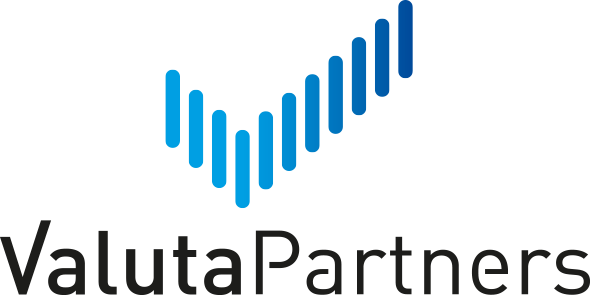Hedging currency risk
Is your operating result partly dependent on the development of exchange rates?

Smart strategies with forward contracts
Suppose your company imports a product and pays for it in US dollars. You then sell this product for euros. Every time you import this product, the exchange rate is different. As a result, the amount that your company pays in euros also changes every time. Do you have fixed price agreements in dollars and fixed selling prices in euros? Then your gross margin is directly dependent on the exchange rate. You can prevent this!

Hedging this currency risk is easy with forward contracts. With a forward contract, you fix the exchange rate for a date in the future for exchanging two currencies: the forward rate. If you hedge the currency risk with forward transactions, your margin is no longer dependent on developments in the currency market. You then no longer consciously or unconsciously speculate whether the value of a foreign currency will rise or fall.
Why hedge currency risk?
Foreign currency trading takes place 5 days a week, 24 hours a day. Exchange rates are determined by changes in supply and demand. News, economic data and changes in central bank policies affect exchange rates. This is an ongoing process and the reason exchange rates change every second.
The foreign exchange market has many technical and fundamental analysts. They try to predict exchange rates based on macroeconomic data, expectations regarding central bank policies and charts. However, no one has a crystal ball. No one can predict exactly what the exchange rate will be at a future date and time. The exchange rate at the time of conversion is most important to your business. Any other exchange rate is irrelevant.
Why? Example: Your company will receive $1,000,000 in 3 months and you do not hedge this risk. You then consciously or unconsciously speculate that the US dollar will strengthen against the euro. In that case, you will receive more euros for the US dollars sold.
That's a possibility. But a week before your company receives the US dollars, the economic data in the US is disappointing, the FED makes statements about their future interest rate policy and the ECB is also prepared to adjust its policy against the expectations of the market. The result is a much weaker US dollar against the euro and EUR/USD is rising rapidly. Despite your initial correct expectation, your company will not benefit from this.
The exchange rate at the time of conversion is therefore most important. The future exchange rate is therefore an important variable that influences the margin on your product or project. Exchange rates are unpredictable. By hedging your currency risk, your operating result is no longer dependent on developments in the currency market.
Risks to your business
Using forward transactions is often thought of as speculating, but the opposite is true. There is often a fear of making the wrong decision, as a result of which you do not benefit from a favorable price development in the future. The question you should be asking is not whether it was the right decision to hedge or not, but: what risk does the future operating result run if you do not hedge the currency risk? What happens if you do not hedge the currency risk?
You may assume that exchange rates are volatile enough that the value of a currency is sometimes an advantage and sometimes a disadvantage. As a result, hedging currency risk would not be necessary, because it would not matter over a longer period. This can be good for your company's margin when your currency trend is positive. But a currency can also trend negatively. If you do not hedge currency risk, this leads to uncertainty and can ultimately have major consequences for your operating result.

Exchange rates can sometimes be out of sync for months or years and fail to return to a level that is beneficial to your business. If your company does not have the luxury of a long breath, it is difficult to wait for this. A currency risk policy prevents this problem.
Why a currency risk policy? This leads to stable business operations. If this does not happen, the operating result in euros will depend on future, unpredictable exchange rates.
Fixed term forward
Hedging currency risk is easy with forward contracts. With a forward transaction, you fix the exchange rate for a date in the future for exchanging two currencies at this moment. This rate is also known as the forward rate. If you conclude the forward transaction, you now know exactly how much you pay in euros for the purchase of foreign currency on the
agreed date in the future. Or how much you receive in euros after selling foreign currency. How the exchange rate develops in the intervening period is now irrelevant. The exchange rate is fixed for that date and for a certain amount.


Flexible forwards
Do you receive or pay irregular and different amounts in foreign currencies? Then a flexible forward transaction is ideal. With a flexible forward transaction, you also fix the forward rate for a specific period and a specific amount. With flexible forward transactions, your company also has the option of making interim drawdowns. This is the exchange of part of the total amount at the fixed forward rate at an earlier point in time. You can do this until the amount is gone.
What if I do NOT hedge my currency risk? Then you will always speculate
Nobody has a crystal ball and can predict the exchange rate for a certain date and time. Therefore, the policy on currency risk must be aimed at preventing conscious or unconscious speculation. Hedging currency risk provides certainty and safeguards your company's margin against changes in exchange rates.
It is crucial for your company to have a policy regarding currency risk. If this policy is not in place, your operating result in euros will depend on future, unpredictable exchange rates. You can prevent this with a correct policy aimed at hedging currency risk. Many large companies have currency risk policies that lead to stable business operations. These companies are not in the news with disappointing annual figures that can be attributed to exchange rates. Every currency exposure is immediately hedged. Is it time for you to adopt a policy on your currency risk?


ValutaPartners helps companies
ValutaPartners also helps companies analyze and quantify currency risks.A sound currency management policy helps with budgeting and pricing and leads to an operating result that is independent of fluctuations in the currency market.
Co-founder Michiel Souren's banking and client side experience in the City of London provided a wealth of knowledge and experience. He gained insight into how banks earn from their customers. But also how to prevent this. He also learned how large multinationals deal with currency risk. He wants to share this experience with the Dutch business community.
